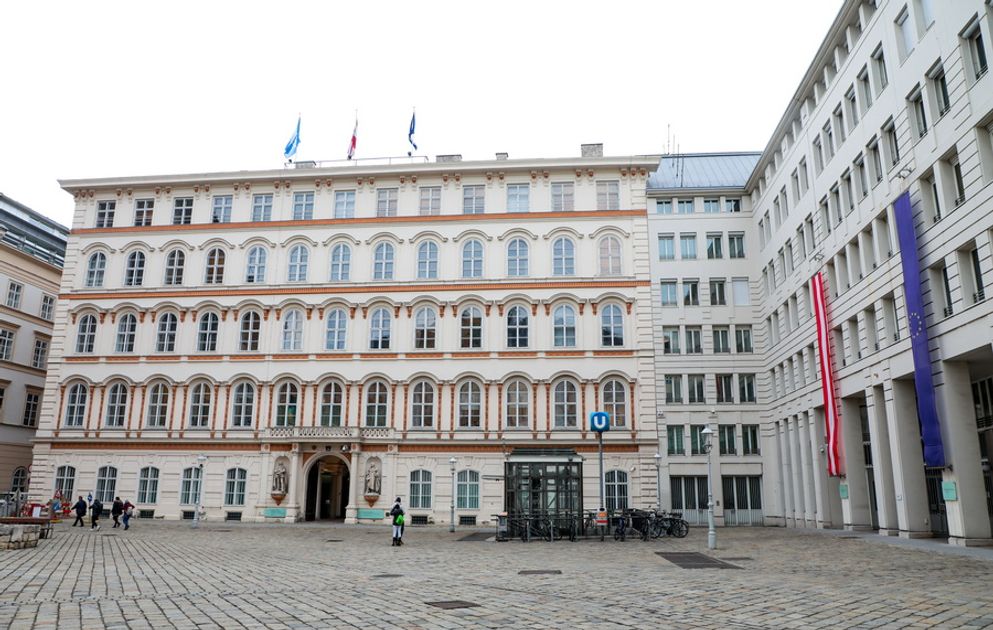Overview of Austria’s Trade Landscape
Austria’s economy is heavily reliant on international trade. According to the World Bank, Austria’s exports and imports represent a significant percentage of its GDP, highlighting the importance of robust trade relationships.
Key Facts
- Austria is a member of the European Union (EU), which facilitates trade with other EU countries.
- The country’s major exports include machinery, vehicles, pharmaceuticals, and manufactured goods.
- Austria imports primarily machinery, vehicles, chemicals, and fuels.
Major Trade Partners
Germany
Overview
Germany is Austria’s largest trading partner, with trade between the two countries forming a substantial part of Austria’s total trade volume. The strong economic ties are facilitated by their geographical proximity and the interconnectedness of their industries.
Trade Dynamics
- Exports to Germany: Machinery, vehicles, and manufactured goods.
- Imports from Germany: Machinery, vehicles, chemicals, and electrical equipment.
Fun Fact
Austria and Germany share a border of over 800 kilometers, fostering seamless trade and economic cooperation.
Italy
Overview
Italy is another significant trade partner for Austria. The historical and cultural connections between the two countries also enhance their trade relations.
Trade Dynamics
- Exports to Italy: Machinery, vehicles, and manufactured goods.
- Imports from Italy: Machinery, chemicals, and textiles.
Fun Fact
Austria exports high-quality ski equipment to Italy, reflecting the shared love for winter sports.
United States
Overview
The United States is one of Austria’s top non-EU trade partners. Despite the geographical distance, trade relations are strong, particularly in high-tech and pharmaceutical sectors.
Trade Dynamics
- Exports to the US: Pharmaceuticals, machinery, and optical/medical instruments.
- Imports from the US: Machinery, aircraft, and pharmaceuticals.
Fun Fact
Austrian crystal, particularly from Swarovski, is highly popular in the United States.
Switzerland
Overview
Switzerland, known for its stable economy, is a key trading partner for Austria. The trade relationship is marked by mutual exchanges of high-value goods.
Trade Dynamics
- Exports to Switzerland: Machinery, pharmaceuticals, and manufactured goods.
- Imports from Switzerland: Pharmaceuticals, machinery, and chemicals.
Fun Fact
Switzerland and Austria collaborate extensively in the banking and financial services sector.
China
Overview
China has emerged as a significant trade partner for Austria, particularly in the realms of technology and manufacturing.
Trade Dynamics
- Exports to China: Machinery, vehicles, and medical instruments.
- Imports from China: Electronics, machinery, and textiles.
Fun Fact
China is a major market for Austrian luxury goods and high-quality consumer products.
France
Overview
France, as a leading EU economy, is a crucial trade partner for Austria. The two countries enjoy robust economic ties across various sectors.
Trade Dynamics
- Exports to France: Machinery, vehicles, and pharmaceuticals.
- Imports from France: Machinery, chemicals, and agricultural products.
Fun Fact
Austrian wine is increasingly popular in France, known for its sophisticated wine market.
Czech Republic
Overview
The Czech Republic, sharing a border with Austria, is a vital trade partner. The proximity facilitates easy exchange of goods and services.
Trade Dynamics
- Exports to the Czech Republic: Machinery, vehicles, and manufactured goods.
- Imports from the Czech Republic: Machinery, vehicles, and electrical equipment.
Fun Fact
The two countries have a long history of industrial cooperation, particularly in the automotive sector.
Economic Impact of Trade Relationships
Austria’s trade relationships significantly impact its economy by
- Enhancing GDP growth through increased exports and imports.
- Creating jobs in export-oriented industries.
- Encouraging technological advancement and innovation through international collaborations.
Government and Academic Insights
Government Perspective
According to the Austrian Federal Ministry for Digital and Economic Affairs, trade agreements and partnerships are vital for Austria’s economic strategy. The ministry actively promotes Austrian exports and seeks to establish favorable trade terms with other countries.
Academic Insights
Academics, such as those from the Vienna University of Economics and Business, highlight the importance of diversification in Austria’s trade portfolio. Diversified trade relationships mitigate risks and ensure economic stability.
Commonly Asked Questions
Why is Germany Austria’s largest trading partner?
Germany’s geographical proximity, shared language, and strong industrial base make it an ideal trading partner for Austria. The interconnected supply chains and economic policies within the EU further strengthen this relationship.
How does Austria benefit from its trade with China?
Trade with China provides Austria access to a vast market for its high-quality goods and technological products. Additionally, importing from China allows Austrian businesses to source cost-effective materials and components.
What role does the EU play in Austria’s trade?
As a member of the EU, Austria benefits from trade agreements and regulations that facilitate free trade within the EU. This membership also provides Austria with a platform to negotiate trade terms with non-EU countries.
How does Austria ensure the quality of its exports?
Austria maintains stringent quality control standards and regulations to ensure that its exports meet international quality requirements. This emphasis on quality helps Austrian products remain competitive in global markets.
What are Austria’s main export products?
Austria’s main export products include machinery, vehicles, pharmaceuticals, and manufactured goods. These high-value products contribute significantly to Austria’s export revenue.
How does trade impact Austria’s job market?
Trade creates jobs in export-oriented industries such as manufacturing, technology, and pharmaceuticals. It also generates employment in supporting sectors like logistics and services.
Are there any emerging trade partners for Austria?
Emerging trade partners for Austria include countries in Asia and the Middle East, where there is growing demand for high-quality European products. Austria is actively exploring these markets to diversify its trade relationships.
How does Austria manage trade disputes?
Austria manages trade disputes through diplomatic channels and by adhering to international trade laws and regulations. The country also relies on the EU’s mechanisms for resolving trade conflicts.
What measures does Austria take to promote exports?
Austria promotes exports through government initiatives, trade fairs, and partnerships with international trade organizations. The Austrian government provides support to businesses looking to expand their export activities.
How does international trade contribute to Austria’s innovation?
International trade exposes Austrian businesses to new technologies and best practices from around the world. This exchange of knowledge and expertise fosters innovation and enhances the competitiveness of Austrian products.
Conclusion
Austria’s major trade partners play a crucial role in its economic stability and growth. By maintaining strong and diversified trade relationships, Austria ensures a steady flow of goods, services, and innovation. Understanding these trade dynamics provides valuable insights into Austria’s economic strategy and its position in the global market.
- Cities And Towns In Sharp County, Arkansas - September 16, 2024
- Cities And Towns In Pulaski County, Arkansas - September 15, 2024
- Cities And Towns In Pike County, Arkansas - September 14, 2024









